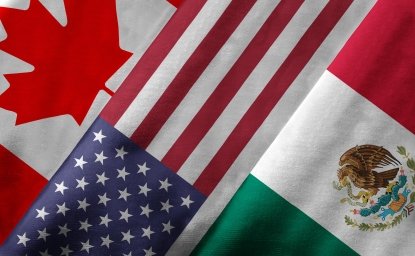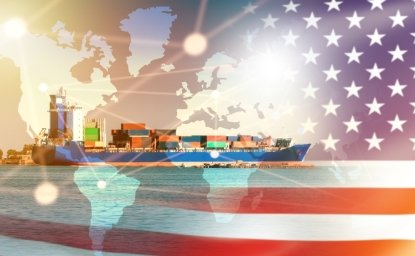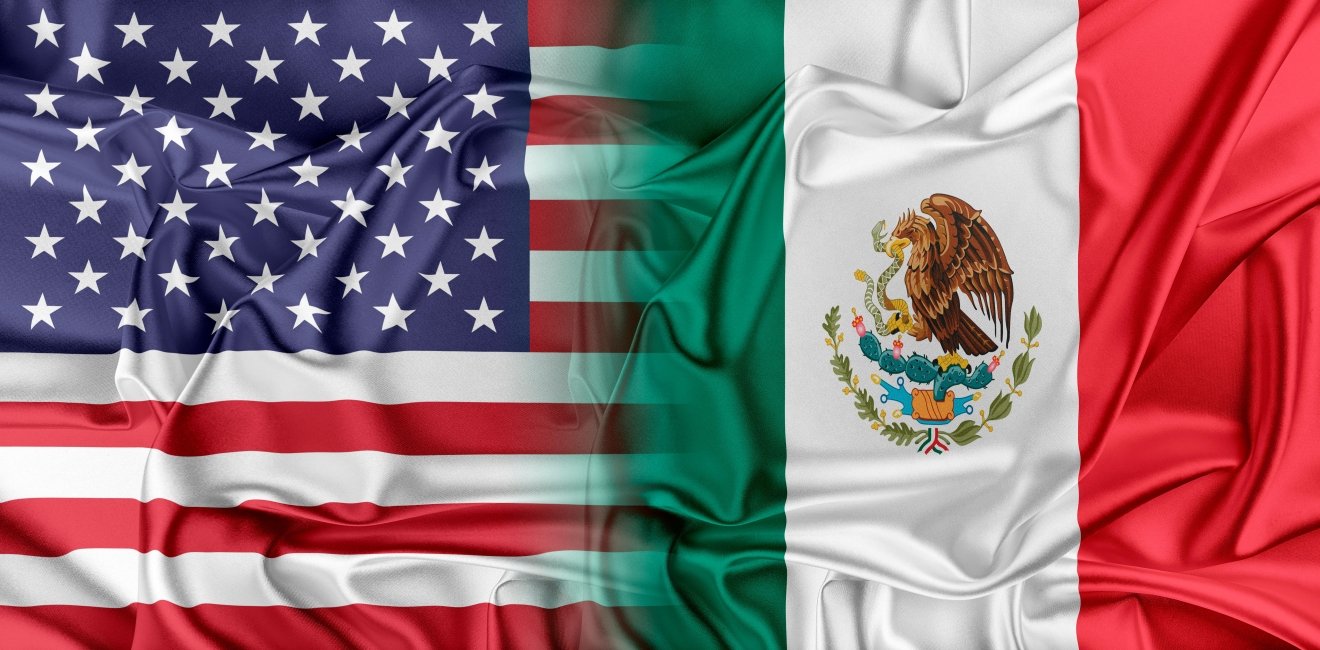Because of the U.S. trade dispute with China, Mexico has become America’s No. 1 trading partner. Mexico’s foreign minister is scheduled to be in Washington for meetings Tuesday, in an effort to put U.S.-Mexico cooperation on firmer footing, especially to overcome U.S. threats tied to migration and to move ahead with the new U.S.-Mexico-Canada trade agreement (USMCA).
Mexico’s President Andres Manuel Lopez Obrador, known as “AMLO,” has been laboring to bring about what he views as a historic transformation for Mexico, realizing the promises of more opportunities for the poor, more just institutions, more security and greater prosperity that swept him to victory last year.
The United States is vital for his chances of success. The U.S. buys 80 percent of Mexico’s exports, and Mexico receives over $25 billion in remittances each year from individuals in the U.S. Therefore, AMLO has been working to manage smartly a turbulent relationship with President Trump, who has focused much negative attention on the border, Central American migration and the U.S. relationship with Mexico. Trump has threatened tariffs and border closures unless Mexico better addresses migration and drug trafficking.
AMLO mostly has turned the other cheek to criticisms from the White House and pressed ahead with efforts to find ways forward with the Trump administration, even while indicating disagreements with U.S. policies.
Faced with U.S. threats to place tariffs on Mexican exports unless Mexico acts more forcefully to stop Central American migrants from reaching the U.S. border, AMLO ordered enhanced enforcement activities by Mexico’s new National Guard and its immigration service in early June.
Mexico’s foreign minister reports a 56 percent decrease in migrants reaching the U.S. border over the past three months. Mexico reportedly has deported over 100,000 Central American migrants to Guatemala so far this year, 63 percent more than the same period last year.
Mexico’s government still refuses to accept a “safe third country” agreement, as the U.S. has requested. Such an agreement would force migrants to seek refuge in Mexico. Yet, it has accepted many thousands of migrants waiting in Mexico for U.S. consideration of their asylum requests. Mexican officials point to effective Mexican enforcement efforts as a success and argue that Mexico and the U.S. now must find ways to better cooperate on economic development and other programs that can address the problems that are pushing Central American to flee northward.
Mexico’s foreign minister likely will seek agreement with his U.S. counterparts on steps to help achieve a sustainable mid- and longer-term solution to migration. This is likely to be focused on a combination of job-creating investments, aid programs and effective enforcement against migrant smugglers, which AMLO and his team have supported.
This kind of enhanced regional effort on migration would require a reversal of the U.S. decision to vastly reduce aid to Central American countries, and would require that U.S. and Mexico cooperation with other countries in the region to broaden and become more coherent. Mexico’s still underfunded and understaffed migration and refugee agencies also urgently need more investment to sustain Mexico’s steps to curb uncontrolled migration.
Stabilizing U.S.-Mexico trade is a big priority for Mexico via U.S. approval of the USMCA. The trade agreement will provide vital certainty and predictability for Mexico’s $1 million-a-minute commerce with the U.S.
At present, Democrats in the U.S. House of Representatives are seeking improvements in the USMCA requirements regarding labor, the environment and pharmaceuticals. They are negotiating with the U.S. Trade Representative over potential fixes. AMLO met with the head of the U.S. AFL-CIO union federation last week and promised full support for implementing labor reforms in Mexico — a key element for winning U.S. support for USMCA. These productive discussions should result in a deal that can gain congressional approval, which would be a win for all concerned, including the 12 million U.S. workers whose jobs are tied to commerce in North America. If Congress does not approve the trade deal this fall, it likely will wait until after the 2020 U.S. presidential election.
Finally, an important U.S. request for Mexico’s foreign minister is better cooperation against drug trafficking. Heroin, fentanyl and meth trafficking from Mexico continues to grow, feeding the U.S. addiction crisis and giving Mexican cartels an estimated $19 billion to $30 billion a year, which fuels violence and corruption in Mexico.
U.S. officials say AMLO and his team have not committed to seriously going after the drug trafficking networks that bring so much violence and pain to both countries. Trump recently sent a clear public warning that Mexico needs to demonstrate progress in working against these drug trafficking groups. While understanding that AMLO’s government is struggling to tackle domestic crime, as homicides continue to rise, the U.S. desire for better cooperation and commitment from ALMO and his team is well-founded, given the Mexican drug flow and U.S. addiction numbers.
Both neighbors have much to gain if they can fortify a good partnership on commerce, migration and cross-border crime. This week’s conversations can help foster that progress.
Author

Former Career Ambassador to Afghanistan, Argentina, and Mexico; Distinguished Diplomat in Residence, School of International Service, American University

Mexico Institute
The Mexico Institute seeks to improve understanding, communication, and cooperation between Mexico and the United States by promoting original research, encouraging public discussion, and proposing policy options for enhancing the bilateral relationship. A binational Advisory Board, chaired by Luis Téllez and Earl Anthony Wayne, oversees the work of the Mexico Institute. Read more

Explore More
Browse Insights & Analysis
USMCA Resource Page

Understanding Trade Promotion Authority (TPA): Implications for US Trade


